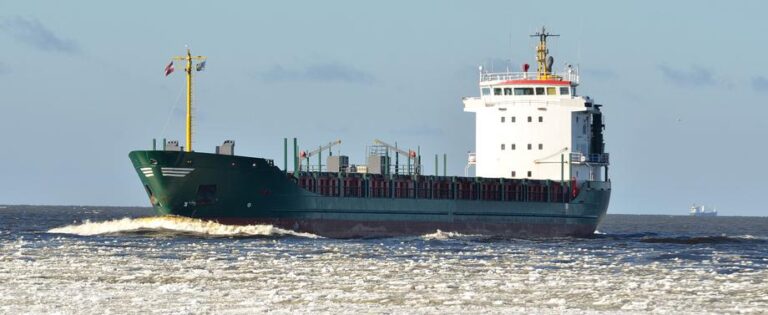The Nordic Orion became the first cargo ship to take the treacherous Northwest Passage from the Pacific Ocean to Europe last year, and now its Danish operators are planning more trips across the Arctic as the sea ice melts
Global warming could mean cargo ships will be crossing the Arctic to access the Pacific Ocean, avoiding the Panama Canal. © Shutterstock/ Aleksey Stemmer
In September 2013, the ship carried 73 500 tons of coal from Vancouver, in Canada, to Finland by cutting directly across the Arctic, shaving about four days off a trip which would normally take it through the Panama Canal and across the Atlantic.
The Nordic Orion is likely to be the first of many ships to use the route as global warming reduces the sea ice.
It is a trend that has caused concern among environmental groups, who are worried about the impact of pollution on the near-pristine Arctic environment. The noise of ship engines cutting through the Arctic Ocean will also irritate the sensitive hearing of sea mammals such as whales.
Researchers are now trying to evaluate the environmental impact that the increasing access will have on the Arctic’s vulnerable ecosystems, so that they can guide policymakers as they seek to regulate the region.
It’s not only the prospect of more ships making the Northwest Passage, but in recent years researchers have also seen an increase in traffic through the Northern Sea Route, which runs between Asia and Europe through Siberian Arctic waters.
‘You may still have key passages or pivotal points where you have large ice masses or blockages, so you may still need icebreakers to get through, though everything else may be open,’ said Dr Michael Karcher, the assistant coordinator of the EU-funded ACCESS project, which is monitoring the region.
‘Our aim is to provide the science, the knowledge that may help in making political decisions.’
Vast deposits
The thinning ice also means better access to vast oil and gas deposits believed to be buried under the seabed. The Arctic is estimated to have about a third of the world’s undiscovered natural gas and 13 % of its undiscovered oil, and energy firms have already started drilling into the ice.
The long-term trend is for the sea ice to continue melting due to global warming, meaning the scramble to access these resources will only intensify. However, conditions in the Arctic can vary widely over the next few decades, and that makes it tricky for policymakers to regulate.
That’s why the ACCESS project is focusing on the impact of climate change on oil and gas extraction, transportation and sea life over the next 30 years.

